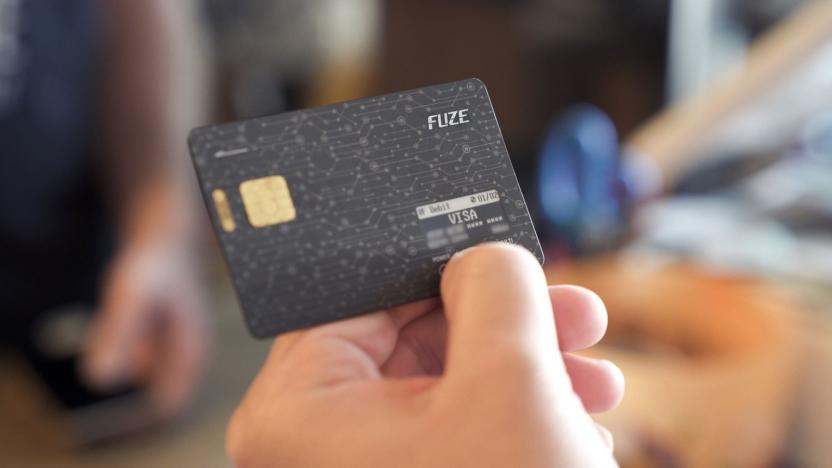fraud
Latest

Twitter is cracking down on financial scams
Twitter has updated its policy on financial scams. As of today, users are not permitted to deceive others into sending money or personal financial information. If you're thinking, it's about time, you're not alone. Previously, Twitter handled cases of fraud via its spam reporting tool. But today's changes detail exactly what is prohibited and should make it easier for users to report fraud.

Judge recommends bitcoin ‘creator’ turn over earnings in lawsuit
The self-proclaimed creator of bitcoin, Craig Wright, has been ordered to hand over half of his bitcoin earnings and intellectual property (IP) -- earned before 2014. They'll go to the estate of David Kleiman, who may or may not have co-created the cryptocurrency. The ruling, reported by CoinDesk, is the latest development in a $10 billion lawsuit. In 2018, Kleiman's brother accused Wright of fraudulently claiming that Kleiman signed over ownership and control of W&K, a company Kleiman ran. Wright was allegedly after Kleiman's Bitcoin earnings.

Facebook is already awash with fraudulent ads about its own cryptocurrency
Facebook revealed its cryptocurrency plans just a month ago, and already it's the subject of a wave of fraudulent ads. As The Washington Post reports, around a dozen fake accounts, pages and groups have appeared on Facebook and Instagram, presenting themselves as official hubs for Facebook's not-yet-available Libra currency.

FTC crackdown targets operations responsible for one billion robocalls
The Federal Trade Commission (FTC) and its law enforcement partners are cracking down on robocallers. Today, the FTC announced that it's filed 94 actions against organizations responsible for more than one billion illegal calls. As part of "Operation Call it Quits," the FTC has opened four new legal cases and three new settlements, bringing the number of cases the FTC has filed against robocallers to 145.

Magic Leap says Nreal founder stole its mixed reality secrets
The founder of Nreal -- the company which debuted its $499 mixed reality glasses at this year's CES -- has been accused of stealing AR secrets from former employer, US-based Magic Leap. The Florida startup, which has been working on a mixed reality device for years, says that ex-engineer Chi Xu exploited confidential information to "quickly develop a prototype of lightweight, ergonomically designed, mixed reality glasses for use with smart phones and other devices that are strikingly similar" to the Magic Leap One device.

Amazon asks delivery drivers to verify their identities with selfies
Amazon is asking its delivery drivers to take selfies so it can verify their identities using facial recognition. The rules apply to drivers in the Amazon Flex program, through which they make deliveries with their own cars as independent contractors, the company confirmed to The Verge.

Car2go: 'Fraud' caused Chicago shutdown, not hacking
Car2go's rental service just suffered what appears to be a major incident. The company has temporarily suspended operations in Chicago after a "fraud issue" in the city. While Car2go didn't provide details (it told Engadget there was an "ongoing investigation"), sources for CBS' Brad Edwards claimed that up to 100 luxury cars had gone missing or were reported stolen, some of which had been used for crimes. Over 12 people were in police custody, Edwards said.

US convicts Romanians over scheme that hijacked 400,000 computers
Two Romanian residents are about to face prison time for a particularly large digital crime spree. A federal jury has found Radu Miclaus and Bogdan Nicolescu guilty for a scheme that stole credit card data and other sensitive info by hijacking over 400,000 computers located primarily in the US. The duo reportedly developed custom malware in 2007 that would pose as a legitimate organization (such as the IRS, Norton or Western Union) and infect PCs when users opened an attachment. From then on, the perpetrators stole data and money by injecting fake websites (such as bogus eBay auctions), mining cryptocurrency in the background and amassing contact information that could be used to infect more targets.

Former Senate IT worker pleads guilty to doxxing senators on Wikipedia
One former Senate worker is about to face harsh consequences for a doxxing campaign. Jackson Cosko has pleaded guilty to stealing multiple Senators' personal information from the Senate's network and publishing it on Wikipedia, including Mitch McConnell, Lindsey Graham, Orrin Hatch and Mike Lee. He admitted to being angry after he was fired from his systems administrator job at Sen. Maggie Hassan's office in May 2018, and conducted an "extensive computer fraud and data theft scheme" as revenge between July and October.

Man pleads guilty to hijacking Apple IDs of rappers and sports stars
The end to Celebgate didn't mark the end to attempts to exploit superstars. Georgia resident Kwamaine Ford has pleaded guilty to hijacking Apple IDs of athletes (including NBA and NFL players) and rappers for the sake of spending sprees. From "at least" March 2015 onward, Ford tricked stars into handing over their account details primarily through a phishing campaign where he posed as an Apple customer support rep. Whenever he succeeded, he'd change the sign-in details and attempt to obtain credit card information. He'd use that to pay for "thousands of dollars" of travel, furniture and money transfers.

Sinemia offers more details on why it has been terminating accounts
A few weeks after Sinemia users reported their accounts were wrongfully terminated, the company is offering more details. Sinemia is sticking to its explanation that accounts were closed due to fraudulent activity or misuse. Now it says misuse could include using the Sinemia card to purchase concession stand items, using multiple Sinemia accounts on the same device or seeing the same movie more than three times -- a full list was provided to Engadget via email and is reproduced below.

VW and its former CEO charged with defrauding investors in diesel scandal
The US Securities and Exchange Commission (SEC) announced that it is charging Volkswagen and its former CEO Martin Winterkorn for defrauding US investors during the company's "Dieselgate" scandal. The agency accused the company and its top executive of issuing more than $13 billion in bonds and securities in the US despite knowing that more than half a million vehicles in the market failed to meet emissions standards.

US arrests cryptocurrency exec over 'multibillion-dollar' fraud
Cryptocurrency scams are nothing new, but they're rarely as large as this. US law enforcement has arrested Konstantin Ignatov over a fraud charge relating to OneCoin, the cryptocurrency he helped found. Ignatov, his sister Ruja Ignatova (also charged, but hiding) and others allegedly orchestrated a "multibillion-dollar pyramid scheme" where people received commissions for persuading people to buy OneCoin packages that themselves were junk. OneCoin reportedly rigged prices, sold people non-existent coins and didn't even have a true blockchain to manage the currency.

Canada will allow US extradition of Huawei CFO to move forward
Huawei financial chief Meng Wanzhou is one step closer to facing sanctions-related fraud charges in the US. Canada's Department of Justice has issued an Authority to Proceed measure that greenlights the extradition process for Meng, making it that more likely she'll head south. A British Columbia Supreme Court will set the date for the extradition hearing at a March 6th court date where Meng will appear.

DOJ busts gang for allegedly selling fake cars on eBay
The Department of Justice has unsealed information about an organized crime ring that used online sites like eBay and Craigslist to defraud people. 20 people, including 16 people from Romania and Bulgaria, stand accused of RICO, wire fraud and money laundering offenses, as well as identity theft.

My other life as a Kickstarter scammer
I have the process down to a tee. I start by browsing Kickstarter, looking for projects with active campaigns. There's no specific selection criteria. Perhaps I find one that's just gone live, or one coming to the end of its fundraising window. I reach out with a message, explain who I am and invite the project contact to book in an interview. On the call, I feign interest, ask the right kind of questions and promise a write-up on Engadget in the near future. I leave it a day or two and reach out again, saying I've heard great things from others about a specialist that can increase a project's exposure for a daily fee. A highly unethical move for a journalist, but I set to profit from it, so what do I care? The Engadget article never materializes, of course, because this person isn't me.

Man sentenced to 65 months in prison over phone 'cloning' scheme
The US is tying loose ends on an elaborate cellphone crime spree. A Florida judge has sentenced Braulio De la Cruz Vasquez to 65 months in prison after he pleaded guilty to charges he worked with four co-conspirators (who've already pleaded guilty) as part of a ring that would 'clone' phones and use them for international calls. De la Cruz would receive identifying information linked to wireless subscribers' accounts and use that to "reprogram" cellphones he controlled. After that, his partners would send international calls to his home internet connection and route them through the hijacked phones, making the unwitting victims pay for others' calls.

Drone giant DJI will take a huge loss due to employee fraud
The world's largest drone-maker, DJI, has reported that it will take a loss of up to a billion yuan ($150 million) due to employee fraud, according to Bloomberg and other sources. The company said that it fired multiple employees who apparently inflated parts costs to pad their own pockets. DJI discovered the "extensive" corruption during an internal probe and has contacted law enforcement.

Hulu beats Netflix with its own Fyre Festival documentary debut
Both Hulu and Netflix have been working on documentaries about the disastrous Fyre Festival, and Hulu has now released its version just a few days ahead of Netflix. Fyre Fraud, as its name suggests, gives a look into how those behind Fyre Festival defrauded investors as well as attendees. And the film shows how the event turned out to be an utter fiasco lacking the luxurious food, accommodations and performances initially promised.

US Secret Service is probing how crooks use smart credit cards for fraud
Credit card thieves have been taking advantage of smart card technologies to avoid getting caught, according to Krebs on Security. The US Secret Service offices in New York and St. Louis have apparently been working on a criminal investigation involving fraud rings using Fuze Cards to store stolen card data. Fuze Cards allow you to store up to 30 credit card details, and you can switch between them using the small screen on the front. It makes the data of the card you want to use available to merchants via a magnetic stripe and an embedded chip. You can also use them to withdraw money from ATMs.









